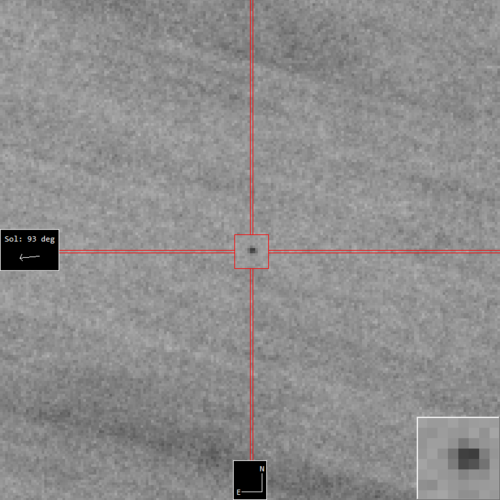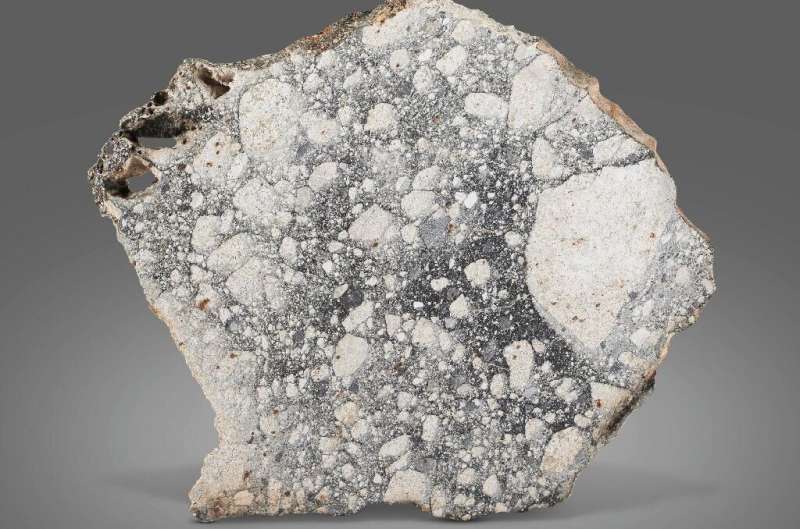
Copernical Team
NASA plans mid-March test for SLS moon rocket's first flight
 NASA officials said Thursday the space agency is making progress toward a crucial test in mid-March of the first moon rocket since the Apollo-era but the agency did not set a new launch date for the first lunar mission.
NASA plans the full "wet-dress rehearsal" of the SLS moon rocket on the pad at 6 p.m. ET on March 17.
The first such mission to the moon, although uncrewed, may h
NASA officials said Thursday the space agency is making progress toward a crucial test in mid-March of the first moon rocket since the Apollo-era but the agency did not set a new launch date for the first lunar mission.
NASA plans the full "wet-dress rehearsal" of the SLS moon rocket on the pad at 6 p.m. ET on March 17.
The first such mission to the moon, although uncrewed, may h Dusty Flight 19 completed and looking ahead to Flight 20
 Flight 19 was successfully completed on February 7, 2022, at 20:21 PST (Sol 345 of the Perseverance mission, 12:00 LMST Local Mean Solar Time), and placed Ingenuity safely within the designated landing ellipse just above the eastern ridge of the "South Seitah" basin. Flight 19 was a reminder of the challenges and unpredictability of the Martian environment.
As discussed in our previous upd
Flight 19 was successfully completed on February 7, 2022, at 20:21 PST (Sol 345 of the Perseverance mission, 12:00 LMST Local Mean Solar Time), and placed Ingenuity safely within the designated landing ellipse just above the eastern ridge of the "South Seitah" basin. Flight 19 was a reminder of the challenges and unpredictability of the Martian environment.
As discussed in our previous upd PPM partners with Aston Uni to develop game-changing satcom technology
 Pulse Power and Measurement Ltd (PPM) has been working with Aston University through a Knowledge Transfer Partnership (KTP) to develop a game-changing approach to technology used in the radio-over-fibre communications industry. The project will look to transform the connection between low earth orbit (LEO) satellite antenna dishes and modems through optics rather than electronics, delivering per
Pulse Power and Measurement Ltd (PPM) has been working with Aston University through a Knowledge Transfer Partnership (KTP) to develop a game-changing approach to technology used in the radio-over-fibre communications industry. The project will look to transform the connection between low earth orbit (LEO) satellite antenna dishes and modems through optics rather than electronics, delivering per Intelsat announces successful emergence from financial restructuring process
 Intelsat S.A. has successfully completed and emerged from its financial restructuring process as a private company with a substantially strengthened capital structure to support its growth as the leader in satellite communications. This final milestone follows receipt of regulatory approvals, completion of certain corporate actions, and satisfaction of other customary conditions.
Intelsat'
Intelsat S.A. has successfully completed and emerged from its financial restructuring process as a private company with a substantially strengthened capital structure to support its growth as the leader in satellite communications. This final milestone follows receipt of regulatory approvals, completion of certain corporate actions, and satisfaction of other customary conditions.
Intelsat' Rocket Lab Selected by MDA to Design and Build Spacecraft for Globalstar
 Rocket Lab USA has been awarded a subcontract by MDA Ltd to lead the design and manufacture of 17 spacecraft buses for Globalstar's new Low Earth Orbit satellites. Globalstar, Inc. Rocket Lab will lead the development of the spacecraft buses, while MDA will act as prime contractor to manufacture Globalstar's satellites, lead the development of the payload, and perform the final satellite assembl
Rocket Lab USA has been awarded a subcontract by MDA Ltd to lead the design and manufacture of 17 spacecraft buses for Globalstar's new Low Earth Orbit satellites. Globalstar, Inc. Rocket Lab will lead the development of the spacecraft buses, while MDA will act as prime contractor to manufacture Globalstar's satellites, lead the development of the payload, and perform the final satellite assembl Meet the Experts: The James Webb Space Telescope
 Video:
00:12:24
Video:
00:12:24
Are you curious to know how a telescope works? Join ESA astronomer Giovanna Giardino as she gives an insight into the inner workings of the world’s largest telescope in space, the extraordinary James Webb Space Telescope.
Find more episodes in the Meet the Experts series here.
Severe heatwaves putting lakes in hot water

The rise and fall of the riskiest asteroid in a decade

Dog kennel hit by meteorite sells at auction

A Christie's auction of rare meteorites Wednesday sold a rock from space that narrowly missed a German Shepherd when it smashed into his kennel in Costa Rica.
But the offer of the third-largest piece of Mars on Earth failed to make an impact at the auction house's annual sale of unusual meteorites.
The buyer paid $21,420 for the three-by-1.5 inch (eight-by-four centimeter) carbonaceous chondrite stone that landed in the garden of dog Roky's owner's home in Aguas Zarcas in April 2019.
The wood and tin doghouse itself, complete with a seven-inch hole marking where the meteorite punctured the roof, sold separately for $44,100, Christie's said.
That was much less than the pre-sale estimate of between $200,000 and $300,000.
A bidder paid $189,000 for a chunk of lunar rock that was discovered in Morocco in 2007, below pre-sale estimates of up to $300,000.
Another slice of the Moon—found in the Sahara desert in Mauritania—fetched $69,300 during the two-week online sale that ended Wednesday.
Is Marscrete the answer to building on Mars?

How can we build on Mars? A casual chat with a geologist led a University of Canterbury (UC) engineering academic and his team to spend years researching how to build on Mars. It all started with Associate Professor Allan Scott and Geology Professor Chris Oze (Occidental College) pondering what materials were available on Mars to make concrete or "Marscrete."
Earthly concrete is made with Portland cement, which is produced by heating limestone to drive off the CO2. Cement, the main binder, is mixed with sand, stone, and water to create concrete.
But the pressing question is: What is available on Mars to bind the materials of Marscrete together?
"Unfortunately, on Mars there is not a lot of limestone so we are looking at alternative ways to find some sort of binder system," says Associate Professor Allan Scott.
